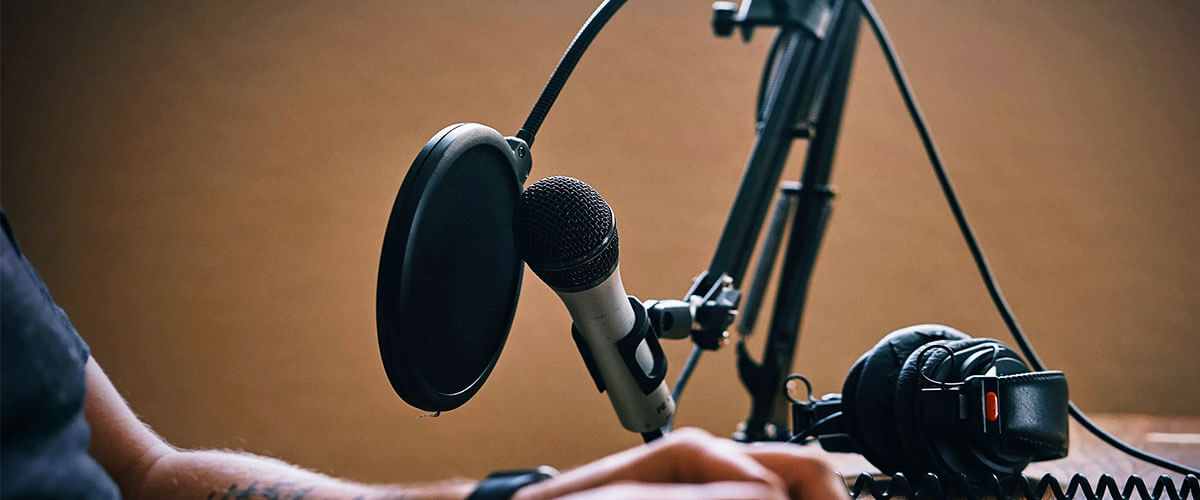In 2025, everyone’s asking, “what makes a good podcast?” The audio landscape has exploded with choices, making quality paramount. A standout podcast isn’t just about captivating stories or magnetic hosts; it’s an intricate blend of factors. To craft a truly great podcast that resonates with listeners, you should understand these key components.
Join me as we explore the vital ingredients needed to elevate your podcasting game!
Clear purpose and focus

Before hitting the record button, ask yourself: Who is my intended audience? What are they seeking? Identifying these answers sharpens the lens through which you produce your content.
By understanding and catering to your audience’s desires, you not only give your podcast its distinctive voice but also offer listeners a compelling reason to choose you amidst countless others. Your focus isn’t just a guide; it’s your podcast’s magnetic north.
Engaging content

From my years in podcasting, I’ve learned that what makes a podcast good is its magnetic pull. Consider content that’s a cocktail of information, entertainment, and inspiration. For instance, a travel podcast might blend intriguing historical facts (information), with humorous travel mishaps (entertainment), and stirring stories of local heroes (inspiration). This breadth keeps listeners hooked, eagerly awaiting your next episode.
High-quality production

I’ve heard countless promising podcasts fall flat due to poor production. Investing in a solid microphone changed my podcast game. Coupled with mastering the basics of audio editing, it elevated my content’s professionalism. And never underestimate the power of a memorable intro and outro – they set the mood and make your show instantly recognizable.
Authenticity and passion
Early in my podcasting journey, I tried scripting everything. It sounded… sterile. Listeners can sense genuine passion and authenticity. When I began speaking from the heart, sharing real stories and emotions, the connection with my audience deepened. Authenticity breeds trust, and trust fosters loyalty. Don’t be a polished robot, be real!
Effective promotion and marketing

In the saturated world of podcasting, what makes a nice podcast rise to the top? Active promotion. Harnessing the power of social media, collaborating with like-minded creators, and regularly engaging with listeners can drastically expand your reach. Encourage reviews, request feedback, and immerse yourself in the podcasting community. Don’t forget the behind-the-scenes magic of comprehensive show notes, transcriptions, and smart SEO strategies to enhance organic growth.
Interactive elements
One of the good podcast tips and tricks I’ve come across is building a community. Podcasts that open a direct line of communication with their audience create a tight-knit group. Think about it: when you weave in listener feedback or host those lively Q&A sessions, you’re giving your audience a stake in the conversation. Oh, and don’t get me started on surveys! They’re gold. Engaging your audience makes them feel seen, heard, and more invested in your podcast’s success.
Monetization and sustainability

Alright, time to talk money. Keeping your podcast running isn’t just about passion; it’s also about sustainability. Whether it’s through sponsorships, generous listener donations, or slinging some cool merchandise, monetization is key. However, here’s the trick: balance. Because let’s face it, if monetization compromises your content’s integrity, then what’s the point?
FAQ
How do I choose a niche for my podcast?
Choosing a niche is about passion and meeting purpose. Ask yourself, “What topics ignite my passion?” and “Is there a hungry audience for this?” Do some research and see what’s oversaturated and where there might be gaps.
Can I start a podcast on a tight budget?
Absolutely! Launching a podcast doesn’t necessarily require top-tier equipment or software. Many successful podcasters began with just a smartphone and free editing tools. However, it’s important to understand what topic you’re the most interested in. Before getting started, take a moment to introspect. To make sure you’re on the right path, honestly answer the questions about why you should start a podcast. Knowing your “why” and understanding potential challenges will set a firm foundation, regardless of your budget.
How do I handle negative feedback or criticism?
Facing criticism, especially in a public platform like podcasting, can be daunting. The key is discernment. First, filter out the trolls and focus on genuine feedback. Constructive criticism can be invaluable, pointing you toward areas of improvement. For the non-constructive critiques, develop a thick skin and remember your purpose. Stay committed to your genuine listeners and your podcast’s vision. Let the aim to improve and connect with your audience be the driving force, not the occasional negative comment.
We are supported by our audience. When you purchase through links on our site, we may earn an affiliate commission at no extra cost to you.
Our newsletter
* We will never send you spam or share your email with third parties












